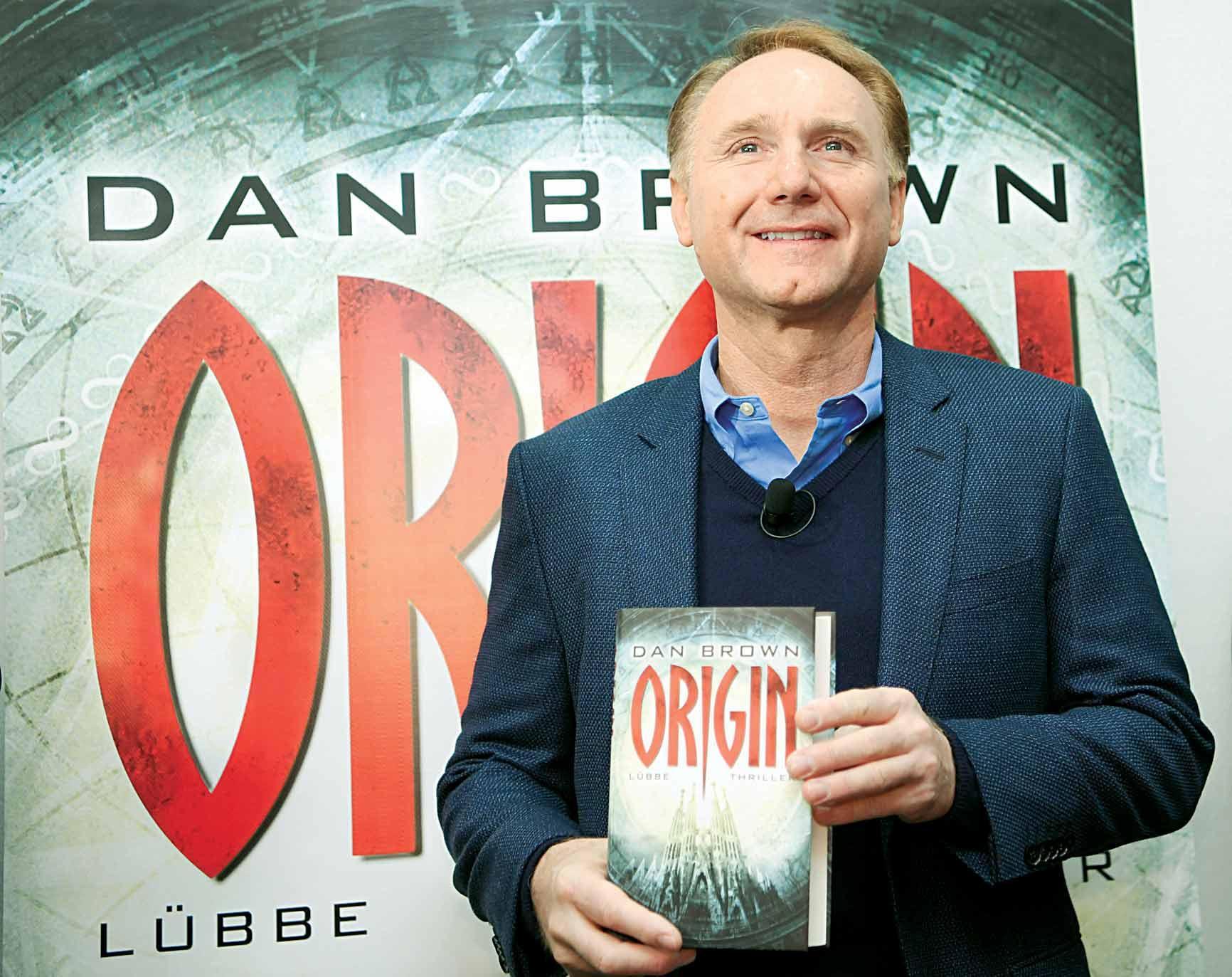
Humanity no longer needs God but may with the help of artificial intelligence develop a new form of collective consciousness that fulfils the role of religion, U.S. author Dan Brown said on Oct. 12.
Brown made the provocative remark at the Frankfurt Book Fair where he was promoting his new novel, “Origin”, the fifth outing for Harvard “symbology” professor Robert Langdon, the protagonist of “The Da Vinci Code,” a book that questioned the history of Christianity.
“Origin” was inspired by the question “Will God survive science?,” said Brown, adding that this had never happened in the history of humanity.
“Are we naive today to believe that the gods of the present will survive and be here in a hundred years?” Brown, 53, told a packed news conference.
Set in Spain, “Origin” opens with Langdon arriving at the Guggenheim Museum in Bilbao for an announcement by a reclusive billionaire futurist that promises to “change the face of science forever”.
Events quickly take an unexpected turn, providing a plot vehicle for Langdon to visit the historic sites of Spain - including Barcelona, capital of the northern region of Catalonia that is now in the grip of a secession crisis.
Brown, who studied art history in Seville, expressed his concern and sympathy for both sides in the political stand-off.
“I love Catalonia. I love Spain. I hope they work it out. It’s a heartbreaking situation, but it’s also a sign of the times,” said Brown, adding the crisis also reflected the tension in society between the ancient and the modern.
Brown, who has sold 200 million books in 56 languages, admitted to not having read a novel in five years. But he investigated deeply and spent a lot of time talking to futurists to come up with the storyline for “Origin”.
He recognized that his views may not be welcomed by clerics, but called for greater harmony between the world’s great religions and those who profess no faith.
“Christianity, Judaism and Islam all share a gospel, loosely, and it’s important that we all realize that,” he said. “Our religions are much more similar than they are different.”
Turning to the future, Brown said technological change and the development of artificial intelligence would transform the concept of the divine.
“We will start to find our spiritual experiences through our interconnections with each other,” he said, forecasting the emergence of “some form of global consciousness that we perceive and that becomes our divine”.
“Our need for that exterior god, that sits up there and judges us ... will diminish and eventually disappear.”